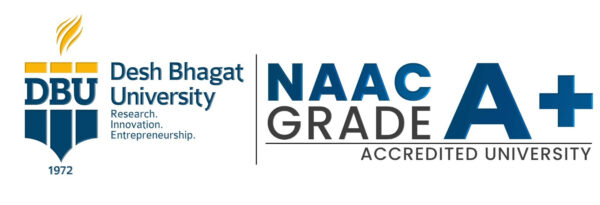PhD in Punjabi Language in India: Salary, Details, Admission 2026
July 19, 2025 2025-12-18 9:55PhD in Punjabi Language in India: Salary, Details, Admission 2026

PhD in Punjabi Language in India: Salary, Details, Admission 2026
A PhD in Punjabi is an advanced academic degree that focuses on the deep study of the Punjabi language, its literature, culture, and linguistics. Punjabi, a language spoken by millions worldwide, is rich in history, culture, and traditions. A PhD in Punjabi not only allows individuals to explore these aspects but also enables them to contribute to the preservation and development of the language. Desh Bhagat University (DBU) offers a PhD program in Punjabi that provides an opportunity for research, study, and academic growth in this important field. This article will provide a detailed overview of the PhD in Punjabi program at DBU, including eligibility, admission process, research areas, career opportunities, salary expectations, and more.
What is a PhD in Punjabi?
A PhD in Punjabi is a research-based program that involves advanced study and original research in the Punjabi language, literature, and culture. The program encourages scholars to contribute to the development of Punjabi by focusing on literature, linguistics, cultural studies, and translation. By pursuing this degree, students become experts in Punjabi and are equipped to teach, research, and contribute to preserving the language.
This program also helps students explore the historical, philosophical, and social contexts that have shaped the development of the Punjabi language and its literature over the centuries. Through research, students can engage in understanding the modern relevance of Punjabi and find ways to integrate traditional knowledge with contemporary applications.
Duration of the PhD Program
At Desh Bhagat University, the PhD in Punjabi is designed to be completed in a minimum of 3 years and a maximum of 6 years, in accordance with the guidelines set by the University Grants Commission (UGC) and the university. This flexibility allows students to work at their own pace, depending on the complexity of their research and the time needed to complete their thesis. If a student requires more time, extensions are granted based on university rules and regulations.
Eligibility Criteria for PhD in Punjabi at DBU
To be eligible for the PhD in Punjabi program at DBU, candidates need to meet certain academic requirements. These ensure that students are well-prepared to engage in extensive research.
- Educational Qualifications: Candidates must have completed a Master’s degree in Punjabi or a related field with at least 55% marks in aggregate. The equivalent grade of B in the UGC 7-point scale will also be considered.
- Relaxation for Reserved Categories: As per UGC guidelines, candidates from SC/ST and OBC categories are given a relaxation of 5% in the eligibility marks, meaning they can apply with 50% marks.
- M.Phil. Holders: Candidates who have completed an M.Phil. in Punjabi or a related field are also eligible to apply for the PhD program.
- Exemption for NET/JRF: Candidates who have cleared the UGC NET (National Eligibility Test) or JRF (Junior Research Fellowship) in Punjabi or a related field are exempted from the entrance test.
Candidates who meet these requirements can proceed to apply for the PhD program at DBU.
Admission Process for PhD in Punjabi
The admission process for the PhD in Punjabi at Desh Bhagat University is designed to select students who are committed to research and academic excellence. The process consists of two stages: the entrance test and the interview.
Stage 1: Entrance Test
The first stage of the PhD admission process is the entrance test. This test evaluates candidates’ readiness for research and their knowledge in relevant areas. The entrance test is divided into four sections:
- Section A: Research Methodology (30 marks): This section tests the candidate’s understanding of research principles, research methods, and the ability to conduct independent research.
- Section B: Functional English Language (15 marks): This section evaluates the candidate’s proficiency in the English language, especially in reading, writing, and understanding academic English.
- Section C: Functional Knowledge of Computers (15 marks): In this section, candidates are tested on their ability to use computers and relevant software for research purposes.
- Section D: Subject-Specific Questions (40 marks): This section includes questions related to the Master’s level syllabus in Punjabi. It tests the candidate’s knowledge of the Punjabi language, literature, and culture.
There is no negative marking in the entrance test, so candidates are encouraged to attempt all questions.
Stage 2: Interview
Candidates who pass the entrance test will be called for an interview. During the interview, candidates are required to present their research proposal and discuss their ideas for the PhD dissertation. The Department Research Committee (DRC) will evaluate the candidate’s proposal and assess its relevance, feasibility, and originality. The committee also discusses the candidate’s research interests and ensures that the proposed research aligns with the university’s academic goals.
The final selection for admission to the PhD program is based on the candidate’s performance in both the entrance test and the interview.

Research Areas in PhD in Punjabi
The PhD in Punjabi program at DBU offers various research areas, allowing students to specialize in topics that interest them the most. Some of the key research areas in the program include:
- Punjabi Literature: Research in this area focuses on both classical and modern Punjabi literature, including poetry, prose, drama, and fiction. Scholars can examine literary themes, styles, and historical influences.
- Linguistics: This area covers the study of the Punjabi language’s structure, phonetics, syntax, semantics, and sociolinguistics. It also explores language development and preservation.
- Cultural Studies: Research in cultural studies explores Punjabi traditions, customs, history, and contemporary issues, including the impact of globalization on Punjabi culture.
- Translation Studies: Scholars can focus on the translation of Punjabi literary works into other languages, or vice versa, while exploring the challenges and strategies of translation.
- Folklore and Oral Traditions: This research area focuses on the study of Punjabi folklore, folk songs, proverbs, and oral literature, which have been passed down through generations.
- Language Preservation: Research in this area looks into how Punjabi can be preserved, promoted, and taught in the modern world, especially in the digital age.
These research areas provide students with the freedom to explore their academic interests while contributing to the development of the Punjabi language and culture.
Important Dates
| Event | Date | Time / Notes |
|---|---|---|
| Start of Online Registration | July 9, 2025 | |
| Last Date to Fill Online Application | July 28, 2025 | |
| Entrance Examination (Online) | August 2, 2025 | 11:00 am – 1:00 pm |
| Result of Entrance Examination | August 5, 2025 | |
| Interview (Offline Only) | August 9, 2025 | 10:00 am – 1:00 pm Venue: Mahapragya Hall, DBU Campus |
| Result of Interview | August 9, 2025 | 03:00 pm |
| Students Biometric Registration | August 9, 2025 | From 03:00 pm onwards |
| Fee Deposit Begins | August 9, 2025 | From 03:30 pm onwards |
| Last Date for Fee Deposit | August 18, 2025 |
Career Opportunities after PhD in Punjabi
A PhD in Punjabi opens up various career paths in education, research, publishing, media, and government services. Some of the most common career opportunities for PhD graduates in Punjabi include:
- Teaching and Academia: One of the most common career paths for PhD holders is to become a university or college professor. You can teach Punjabi language and literature, guide students, and conduct research. Professors with a PhD can also become department heads or curriculum developers.
- Research: As a researcher, you can work in language institutes, research organizations, or cultural foundations. You will contribute new knowledge to the field of Punjabi studies through your research.
- Publishing: PhD graduates can work as editors, translators, or content developers in publishing houses that specialize in Punjabi literature, language, and culture.
- Media: There is a growing demand for professionals in the media who specialize in Punjabi content. You can work as content creators, writers, and editors in newspapers, magazines, radio, television, or digital media platforms.
- Government Services: Many government departments and cultural organizations hire individuals with expertise in the Punjabi language and culture. You could work in areas such as language planning, cultural promotion, or education policy.
- Cultural Organizations and NGOs: PhD graduates can also work with NGOs or cultural organizations that aim to preserve and promote Punjabi heritage and language.
Overall, the career prospects for PhD graduates in Punjabi are vast and diverse, offering both academic and professional growth opportunities.
Salary Expectations for PhD in Punjabi Graduates
The salary for a PhD in Punjabi graduates depends on the type of job, the experience level, and the organization. However, some general salary expectations for various roles are:
- University Professor: An assistant professor in Punjabi language or literature can earn between ₹6,00,000 to ₹8,00,000 per year. Senior faculty positions like associate or full professors can earn between ₹10,00,000 to ₹15,00,000 annually.
- Researcher: Research positions in universities, research institutes, or cultural organizations can offer salaries ranging from ₹5,00,000 to ₹7,00,000 per year.
- Translator/Editor: Working as a translator or editor, especially in publishing houses, can offer salaries ranging from ₹4,00,000 to ₹6,00,000 annually.
- Media Professional: A media professional focusing on Punjabi content can expect to earn ₹5,00,000 to ₹7,00,000 per year, depending on experience and the organization.
- Government Officer: Government positions related to the promotion and preservation of Punjabi can pay between ₹6,00,000 and ₹9,00,000 annually.
Salaries can vary based on experience, location, and specific job responsibilities, but these figures provide a general idea of what to expect.
Financial Support and Scholarships
Desh Bhagat University offers various scholarships and financial aid programs for PhD students. Some of the available support options include:
- University Scholarships: DBU provides merit-based scholarships for students who excel in academics and research.
- Government Fellowships: Students can apply for UGC Fellowships or other government-funded programs such as AICTE Doctoral Fellowships.
- Education Loans: DBU also helps students access education loans to cover tuition fees and living expenses.
These financial aids are designed to make education more accessible and support students throughout their PhD journey.
How to Apply for PhD in Punjabi at DBU
To apply for the PhD in Punjabi program at Desh Bhagat University, follow these simple steps:
- Visit the DBU Website: Go to the official website (https://www.admissions.deshbhagatuniversity.in/) and find the PhD application section.
- Register Online: Create an account on the portal and fill out the online registration form.
- Complete the Application Form: Provide all required personal, academic, and professional information.
- Submit Documents: Upload copies of your academic transcripts, identification proof, and other necessary documents.
- Pay the Application Fee: Pay the application fee through online payment methods.
- Prepare for the Entrance Test: Study for the entrance test, focusing on research methodology, English language skills, computer knowledge, and subject-specific knowledge.
- Attend the Interview: If you qualify for the entrance test, attend the interview and present your research proposal to the Department Research Committee.
Make sure to check the website for updates on deadlines and specific requirements for applying.
Conclusion
A PhD in Punjabi from Desh Bhagat University gives students the chance to deeply study the Punjabi language and culture. The program has a strong admission process, many research areas, and great career opportunities. It is perfect for those who love the Punjabi language and want to help preserve it. By doing a PhD, you can make a real difference in Punjabi literature and culture, both in education and your career.
FAQs
1. What is a PhD in Punjabi?
A PhD in Punjabi is a research-based program where students deeply explore the Punjabi language, literature, culture, and linguistics. It allows students to conduct original research and contribute to the development and preservation of the Punjabi language and its rich cultural heritage.
2. How long does it take to complete a PhD in Punjabi at DBU?
A PhD in Punjabi at Desh Bhagat University can be completed in a minimum of 3 years and a maximum of 6 years. The duration depends on the research work, progress on the thesis, and other academic requirements. Extensions are available based on university rules.
3. What are the eligibility requirements for the PhD in Punjabi program at DBU?
To be eligible, candidates must have a Master’s degree in Punjabi or a related field with at least 55% marks. There is a 5% relaxation for SC/ST candidates. Candidates with an M.Phil. degree in a relevant subject can also apply for the program.
4. What is the admission process for the PhD in Punjabi at DBU?
The admission process consists of two stages. First, you must pass an entrance test, which includes research methodology, English, computer knowledge, and subject-specific questions. If you qualify, you will be called for an interview where you will present your research proposal.
5. What are the research areas available in the PhD in Punjabi program at DBU?
Research areas in this program include Punjabi literature, linguistics, cultural studies, translation studies, folklore, oral traditions, and language preservation. Students can choose to focus on any of these areas based on their interests and career goals.
6. What career opportunities are available after completing a PhD in Punjabi?
After completing a PhD in Punjabi, graduates can pursue careers in academia, such as becoming a professor or lecturer. They can also work in publishing, media, translation, research, and government positions. There are also opportunities in NGOs and cultural organizations dedicated to Punjabi heritage.
7. What is the salary for someone with a PhD in Punjabi?
The salary varies depending on the job. For a university professor, it can range from ₹6,00,000 to ₹8,00,000 per year. Researchers and media professionals can earn between ₹5,00,000 and ₹7,00,000 annually. Government roles and senior academic positions can offer higher salaries.
8. How can I apply for the PhD in Punjabi program at DBU?
To apply, you need to visit the Desh Bhagat University website (https://www.admissions.deshbhagatuniversity.in/), fill out the application form, and submit the necessary documents. You also need to pay the application fee and prepare for the entrance test. Shortlisted candidates will be invited for an interview.
9. What financial support is available for PhD students at DBU?
DBU offers merit-based scholarships, government-funded fellowships like UGC JRF, and assistance in obtaining education loans. These financial aids are designed to support students during their PhD journey and reduce financial burdens.
10. What is the importance of a PhD in Punjabi?
A PhD in Punjabi is important because it contributes to the preservation and growth of the Punjabi language and culture. It helps in advancing academic research in Punjabi literature and linguistics, while also promoting the language globally through media, education, and cultural programs.







